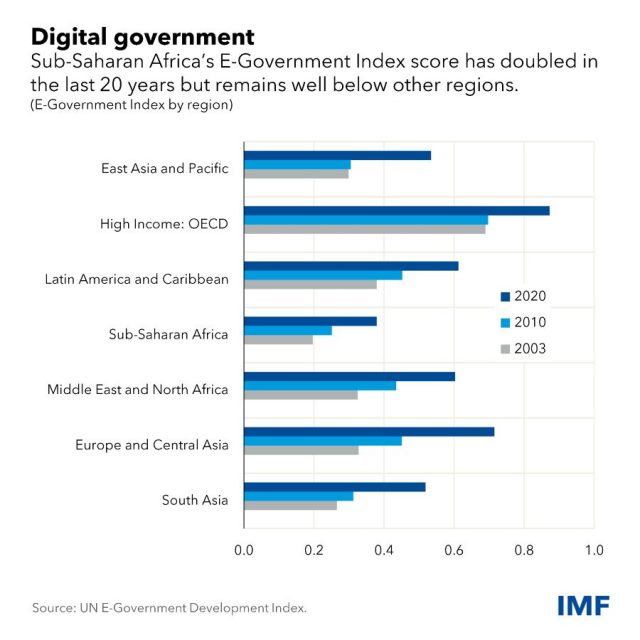By the IMF African Department
FRI, 24 JUNE, 2022-theGBJournal| Countries in the region have made important strides in tackling corruption, with some outperforming emerging market and even advanced economies.
A new book by the IMF, Good Governance in Sub-Saharan Africa features three countries—Botswana, Rwanda and Seychelles—that are leading in the effort to improve governance. A panel discussion moderated by Deputy Managing Director Antoinette Sayeh, was organized as part of the virtual launch.
In an interview with Country Focus, Ms. Sayeh, who was in Botswana last week for a high-level conference on the promotion of good governance, and the editors of the book, Monique Newiak, Alex Segura-Ubiergo and Abdoul Aziz Wane, talk about their findings and the importance of transparency and public integrity for the region’s development.
What are the key elements of good governance?
Antoinette Sayeh: The most successful countries usually have five key elements in place. First, a high level of political commitment to good governance and transparency. You can see that in several ways: by how a country’s budget is formulated and presented; by the degree of independence of the central bank; and whether there is a commitment to declaring the assets of key public officials and publishing audits.
Second, respect for the rule of law and property rights. When foreign investors invest in a country, they do so, knowing that the government will respect the contracts, and property rights will be enforced.
The third element is ensuring efficiency, transparency, and public oversight of investments. This is especially crucial given the need to scale up public investment in infrastructure in Africa. The book points to studies that show that when there is not enough government oversight of public procurement processes, project costs tend to be higher.
Fourth, access to information, which I’ll let Alex talk a little more about.
And finally, innovation and technology, which we believe can play a big role in helping governments deliver on these priorities.
Why does good governance matter for the IMF?
Antoinette Sayeh: Poor governance and corruption have a negative impact on economic growth. They distort public spending and undermine domestic revenue mobilization – an estimated tax revenue losses globally of US$1 trillion. Which is why the Fund has been working with countries on this issue for over 20 years.
And now, at a time when the world faces multiple crises—the COVID-19 pandemic, the war in Ukraine, and the ongoing challenges of climate change—the need for good governance has become more urgent. It’s about more than wasting money; good governance enables growth.
Our efforts focus on reducing vulnerabilities to corruption by strengthening governance in six core state functions: central bank governance, financial sector governance, fiscal governance, market regulation, rule of law, and anti-money laundering.
In addition to the policy advice we offer, we work closely with countries and development partners to develop and implement comprehensive governance reform strategies. Much of this effort is coordinated by the IMF’s network of 17 capacity development centers around the world, six of which are in Africa.
How can countries in the region reap the benefits?
Alex Segura-Ubiergo: To pick up on the point Antoinette raised, first, by making more information available to the public. Access to information facilitates accountability—a key precondition for good governance. When governments produce, gather, and disseminate information, decisions are more transparent, citizens are better informed, and institutions and civil society organizations can hold governments to account.
Second, by ensuring that the tax burden is distributed equitably, and public spending is focused on achieving faster progress toward meeting the sustainable development goals: reducing poverty, increasing access to health and education, and protecting the environment. When citizens perceive that governments are using public resources well, they are more likely to view their tax obligations as legitimate.
Third, by having political leaders that set an example with their actions: publishing their assets and creating incentives to fight corruption with the assistance of an anti-corruption agency and the court system. Together, these create a governance dividend: higher and more inclusive growth through stronger and more transparent institutions that increase accountability.
Are any countries in the region using digitalization to improve the quality of public institutions?
Abdoul Aziz Wane: E-government services—a proxy for digitalization and the use of big data—are expanding in Sub-Saharan Africa, though the region still lags others. The trend accelerated during the COVID-19 pandemic, as digital services played a critical role in policy responses to save lives and livelihoods. Examples include: (i) South Africa’s Western Cape online platform for remote teaching; (ii) online applications launched in Sierra Leone to improve the government’s ability to track quarantine periods and other services like food delivery; (iii) robots and drones deployed in Rwanda to reduce health workers’ exposure to potentially positive COVID-19 patients, and (iv) South Africa’s chatbots to reduce the spread of false information about the virus.
More generally, digitalization can have a crucial impact on institutions. The book documents how strongly institutional quality and e-government are interrelated and how digitalization can reduce the perception of corruption. Digital reforms to enhance institutional quality can make a difference but it is important to sequence them, including by prioritizing education, to ensure people benefit.
The pandemic highlighted the need for greater transparency and oversight in how emergency funds are spent. What practices were put in place in Sub-Saharan Africa that other countries can learn from?
Monique Newiak: Generally, we’ve seen that additional controls are needed to ensure money is well spent in times of crises. More specifically:
Public Financial Management (PFM) processes need to be clearly defined: In countries where such funds are not guided by the regular PFM process, it is essential to develop and publish standard operating procedures for the whole process, from proposal submissions to reporting requirements as well as well-defined roles and responsibilities. Ghana is a good example of a country that included elements of sound PFM into the operations of their COVID-19 fund.
The agility of checks and balances is critical: Rapidly identifying issues when they occur can help fix issues as the emergency response develops. Supreme audit institutions (SAIs) have an important role to play in this regard as they can produce “real-time” audits. The reports published by SAIs in Kenya, Sierra Leone and South Africa were good examples of this early in the crisis.
This article is a publication of the IMF African Department and was original published in the IMF News
Twitter-@theGBJournal| Facebook-The Government and Business Journal|email: gbj@govbusinessjournal.ng|govandbusinessj@gmail.com










